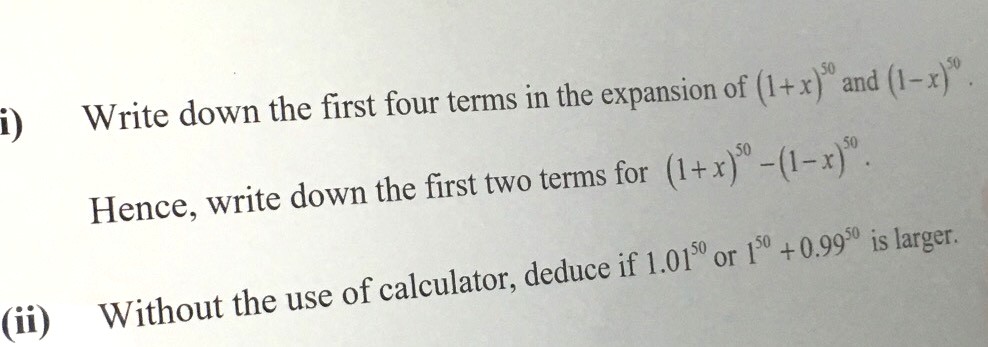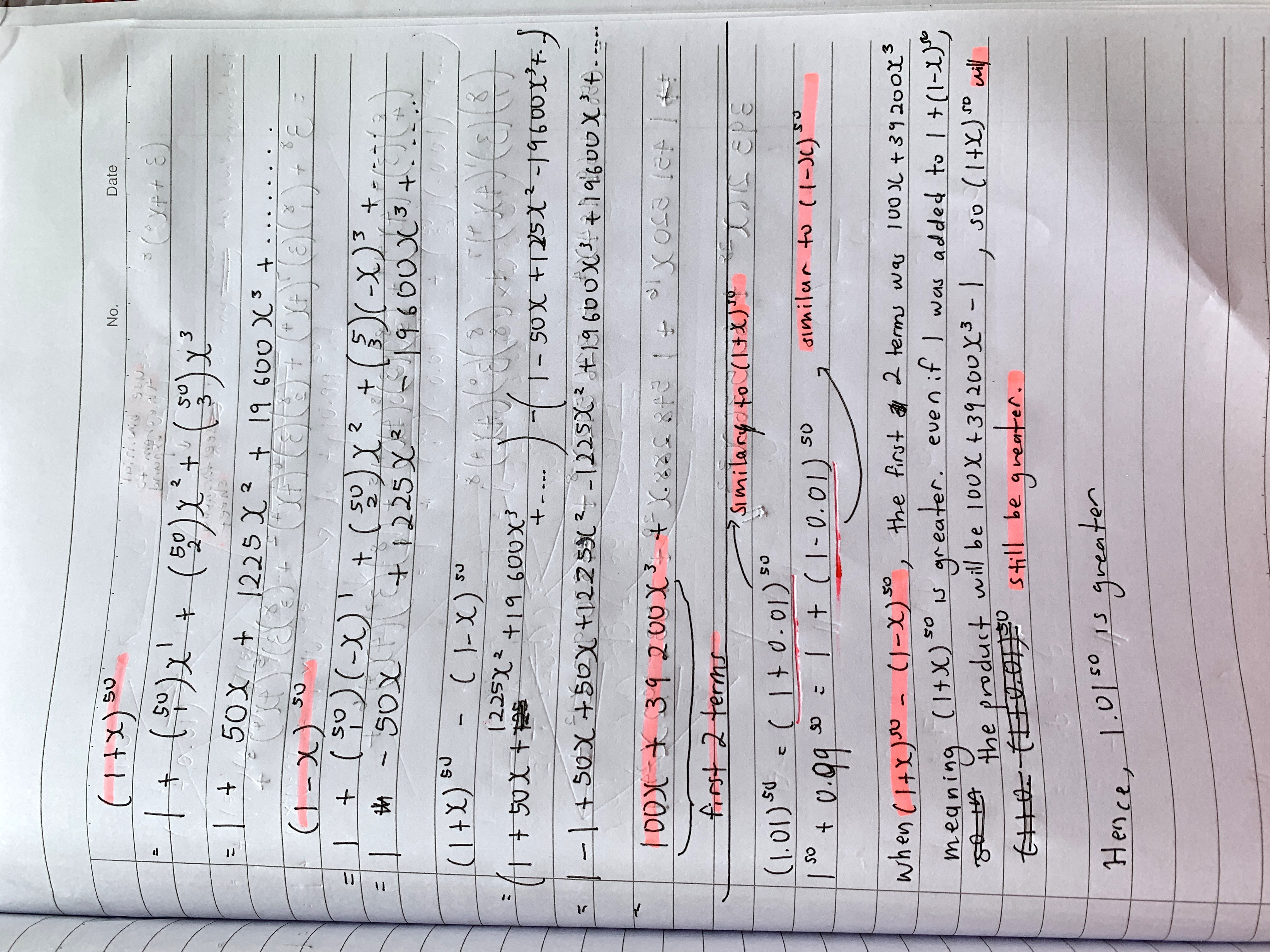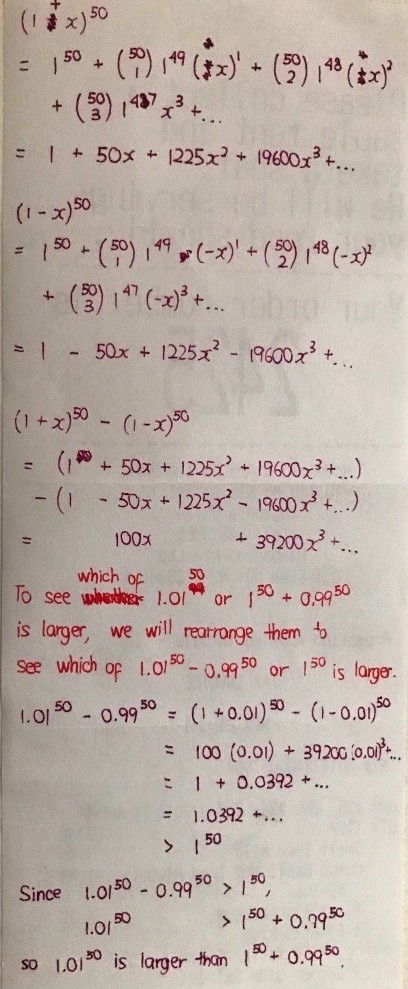Ask Singapore Homework?
Upload a photo of a Singapore homework and someone will email you the solution for free.

Question
secondary 4 | A Maths
2 Answers Below
Anyone can contribute an answer, even non-tutors.

Hi morning! Please kindly help me with (ii) about deducing which is larger.. Thnak you ! :-)
EDIT: Arnold, we can’t just conclude like that yet, because though 0.99 multiplied by itself continuously does get smaller, the way the number decreases is “with a decreasing rate”. It’s not sufficient to conclude our answers as such. We must still back our answers by working.
The nice thing is that multiplying a number already larger than 1 by a further 1.01 gives about a larger change in value than the effect when a number already smaller than 1 is multiplied by a further 0.99.
Take for example, two same numbers 1. If this number is multiplied by 1.01, then the new number is 1.01, which is 0.01 away from 100. If instead this number is multiplied by 0.99, the new number is 0.99, which is also 0.01 away from 100.
However, now that one of the new numbers is 1.01 while the other new number is a smaller 0.99, you will see that 1.01 x 1.01 = 1.0201 which is 0.0101 away from 1.01 while 0.99 x 0.99 = 0.9801 which is 0.0099 away from 0.99. The effect is larger for the 1.01 than for the 0.99 because a larger number multiplied by a positive number will bring about a larger change, even though the upcoming to-be-applied multipliers 1.01 and 0.99 respectively are equally close to 1.
This results in 1.01^n being able to exceed 2 and increasing without limits (a difference of more than 1 from the old value 1.01) while 0.99^n not being able to break into the negative barrier (a difference of never more than a solitary 1 from the starting value 0.99).
See 2 Answers

I hope you have done well in yesterday’s paper and will continue to do well in the coming papers!






